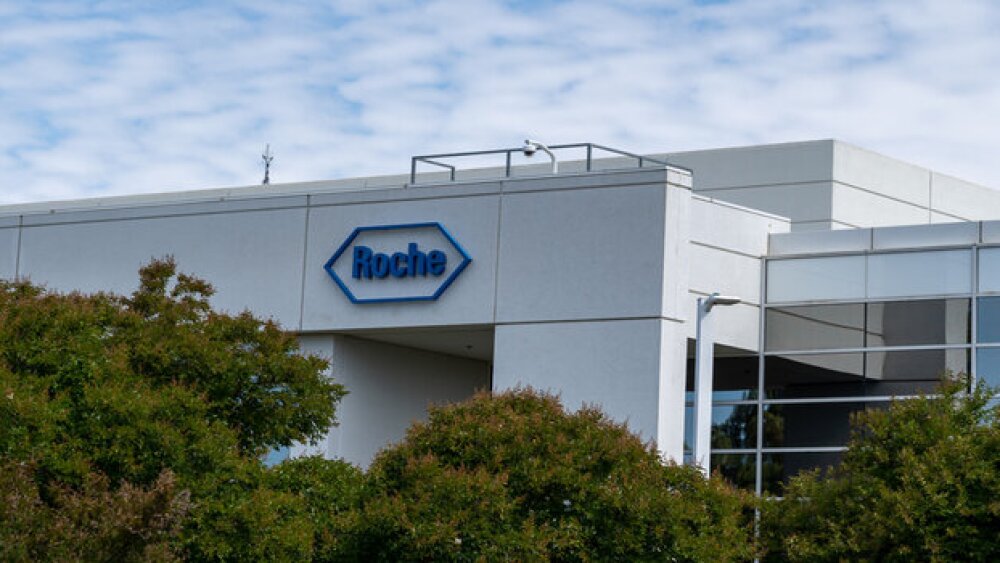SAN FRANCISCO, March 19 /PRNewswire-FirstCall/ -- Medivation, Inc. today announced that six-month results from its randomized, double-blinded, placebo-controlled Phase 2 efficacy trial of Dimebon(TM) in patients with mild-to-moderate Alzheimer's disease demonstrated that patients treated with Dimebon were significantly improved compared to patients taking placebo on all five efficacy endpoints studied, which assessed cognitive function, memory, ability to perform tasks of daily living, global function and behavior.
Full top-line data from this trial were presented yesterday for the first time as an oral presentation (abstract #1662) at the 8th International Conference on Alzheimer's and Parkinson's Diseases: Progress and New Perspectives, in Salzburg, Austria, by the study's lead investigator, Rachelle S. Doody, M.D., Ph.D., the Effie Marie Cain Chair in Alzheimer's Disease Research at the Alzheimer's Disease and Memory Disorders Center, Baylor College of Medicine in Houston.
New data presented in Salzburg included the magnitude and levels of statistical significance by which the Dimebon-treated patients outperformed the placebo-treated patients on the Mini Mental State Exam (MMSE: p<0.0001), the Alzheimer's Disease Cooperative Study Group-Activities of Daily Living (ADCS-ADL: p=0.002), and the Neuropsychiatric Inventory (NPI: p=0.006). As previously reported, Dimebon-treated patients also demonstrated significant improvement versus placebo on both the primary and key secondary endpoints in this study -- the Alzheimer's Disease Assessment Scale-cognitive subscale (ADAS-cog: p<0.0001) and the Clinician's Interview-Based Impression of Change with a caregiver interview (CIBIC-plus: p<0.0001). Dimebon was well tolerated in this study.
"In my experience, the results of this study are particularly striking for two primary reasons," said Dr. Doody. "First, Dimebon produced statistically significant improvement over placebo consistently across all five endpoints studied, including both of the endpoints accepted by the FDA to register drugs for mild to moderate Alzheimer's disease. And second, Dimebon was well tolerated in this study, with less than three percent incidence of the gastrointestinal side effects that sometimes limit utilization of approved cholinesterase inhibitor drugs. Based on these data, I look forward to participating in the planned Phase 3 trials of this promising drug candidate."
The study of 183 patients was conducted at multiple sites in Russia. Patients received oral Dimebon, 20 mg three times a day (60 mg/day), or placebo. The primary efficacy endpoint was the ADAS-cog and the secondary efficacy endpoints were the CIBIC-plus, the MMSE, the ADCS-ADL and the NPI. Medivation is presently completing a 12-month extension of this trial and expects to report top-line data in the second quarter of 2007. Medivation also expects to enter global Phase 3 studies of Dimebon in Alzheimer's disease in 2008 and, assuming positive data, to submit marketing applications in the U.S. and Europe in 2010 for this indication.
About Dimebon
Dimebon, the Company's lead product candidate, is an orally-available small molecule that has been shown to inhibit brain cell death in preclinical models relevant to Alzheimer's disease and Huntington's disease, making it a potential treatment for these and other neurodegenerative diseases. Based on the clinical and preclinical data generated to date, Medivation believes that Dimebon operates by a novel mechanism of action and may exert a neuroprotective effect in multiple areas of the central nervous system. Dimebon appears to block a new target that involves mitochondrial pores, which are believed to play a role in the cell death that is associated with neurodegenerative diseases and the aging process. Medivation is currently evaluating Dimebon in clinical trials in both Alzheimer's and Huntington's diseases.
About Medivation
Medivation, Inc. is a biopharmaceutical company that acquires promising technologies in the late preclinical development phase and develops them quickly and cost-effectively. Medivation's current portfolio consists of small molecule drugs in development to treat three large, unmet medical needs -- Alzheimer's disease, Huntington's disease and hormone-refractory prostate cancer. The Company intends to build and maintain a portfolio of four to six development programs at all times. For more information, please go to http://www.medivation.com.
This press release contains forward-looking statements, including statements regarding the anticipated timing of clinical and regulatory milestones, which are made pursuant to the safe harbor provisions of the Private Securities Litigation Reform Act of 1995. Forward-looking statements involve risks and uncertainties that could cause actual results to differ significantly from those projected. You are cautioned not to place undue reliance on the forward-looking statements, which speak only as of the date of this release. You are also cautioned that none of the Company's product candidates has been approved for sale, that significant additional animal and human testing is required in order to seek marketing approval for any of its product candidates, and that Medivation cannot assure you that marketing approval can be obtained for any of its product candidates. Medivation's filings with the Securities and Exchange Commission, including its Annual Report on Form 10-KSB for the year ended December 31, 2006, include more information about factors that could affect the Company's financial and operating results.
Medivation, Inc.CONTACT: Patrick Machado, Chief Financial Officer, Medivation, Inc.,+1-415-543-3470, ext. 201; or Jani Bergan of WeissComm Partners,+1-415-946-1064, for Medivation; or Lori Williams of Baylor College ofMedicine, Office of Public Affairs, +1-713-798-7637, loriw@bcm.edu
Web site: http://www.medivation.com//




